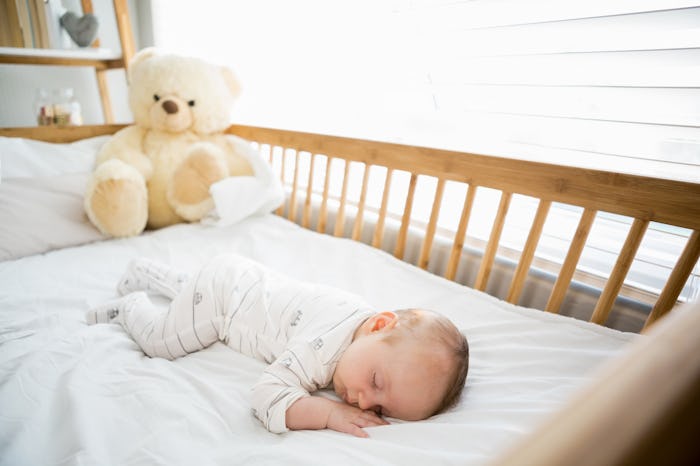Life

What Happens If A Baby Rolls Face-Down While Sleeping?
Being a parent can feel like being a member of the secret service. You are in charge of protecting another person's life, and have a litany of guidelines for safety to review and commit to memory. One of the most vulnerable times to uphold these duties is during the night, when you and your baby are sleeping and you have limited control over what's happening, including what your baby does while she's snoozing. If you're following the recommendation of putting baby to sleep on her back, you may be concerned about what happens if a baby rolls face-down while asleep?
In order to lower the risk factors for Sudden Infant Death Syndrome (SIDS), the American Academy of Pediatrics launched the Back To Sleep campaign in 1994, which encouraged parents to put babies to sleep on their back, only. Since it's inception, the campaign has expanded beyond homes and into daycare centers in order to help protect babies while they sleep. These efforts have paid off, since babies who sleep face-down seem to be at more risk for SIDS than those who snooze on their back, according to the New York Times. So it's no wonder a parent may feel a twinge of panic if they discover their baby is rolling over during naps or nighttime, into a downward facing position.
You may be surprised to walk in and see the little one you put to sleep on her back has made her way onto her belly with no assistance. The rolling from back-to-belly milestone usually happens around the six month mark for most babies, according to What To Expect's website. Since the most common time frame for SIDS to occur is between two and four months, once your baby is strong enough to roll over her chances of SIDS are unlikely, as pediatrician Dr. Sears explained in an article for Parenting magazine.
But regardless of your bambino's age, you'll still need to make sure safety is first when your little one starts to roll over in the night. According to the Baby Sleep Site, if you're baby is still sleeping in a swaddle, stop swaddling once she begins rolling over. You'll also want to make sure the baby's sleep environment is free of any loose objects and that their sleep surface is firm, as the National Institute of Child Health and Human Development recommended.
Eventually, your baby is going to roll over when sleeping, but chances are, there's no need to panic as long as she is past the peek window for SIDS. If you still feel you need extra support when this happens, consult with your pediatrician to discuss your concerns.